Off-Season Velocity Development: Periodize Strength, Speed, and Recovery
Off-season is your launchpad for next-level bat speed and exit velocity. By structuring a periodized plan—alternating strength phases, speed phases, and strategic deload weeks—you’ll build maximal power, cement neuromuscular gains, and sidestep overtraining. This phased approach empowers youth prospects, high-school sluggers, and college-bound hitters to sustain progress, sharpen mechanics in your offense program, and arrive at spring training primed for peak performance.
The Periodization Blueprint
Periodization breaks your off-season into focused blocks or microcycles:
| Phase | Duration | Primary Goal |
|---|---|---|
| Base Strength | 4–6 weeks | Build foundational muscle and tendon resilience (strength & conditioning) |
| Speed Development | 3–4 weeks | Enhance rate of force development and club-head velocity |
| Power Conversion | 3–4 weeks | Apply strength & speed to swing mechanics |
| Deload & Recovery | 1–2 weeks | Facilitate neuromuscular reset and injury prevention |
Research shows periodized training yields greater power gains than non‐periodized plans【https://pubmed.ncbi.nlm.nih.gov/24077472/】.
Phase 1: Base Strength Foundation
Goal: Establish robust musculature and structural integrity for hip drive and core torque.
Key Components:
- Compound lifts (3–5 sets of 4–8 reps): Back squats, deadlifts, Romanian deadlifts
- Upper-body pulls and presses: Pendlay rows, bench presses, chin-ups
- Core stabilization: Pallof presses, anti-rotation planks
Weekly Layout Example:
- Monday: Lower-body strength
- Wednesday: Upper-body strength
- Friday: Full-body stabilization + mobility
Nutrition & Recovery:
- Lean toward higher protein intake (25–30% of calories) to support hypertrophy (nutrition).
- Prioritize sleep and active recovery days with light mobility and foam rolling.
Phase 2: Speed Development
Goal: Increase rate of force development (RFD) and hand-speed acceleration.
Drills & Exercises:
- Overspeed Swings: Use –10–15% underload bats for 3×8 swings, focusing on rapid barrel acceleration.
- Plyometric Complexes:
• Med-ball rotational throws (5–8 lb; 4×6 per side)
• Depth jumps into broad jumps (3×5) - Olympic-Lift Variations: Hang cleans or power snatches (3–4 sets of 3–5 reps) to reinforce explosive hip extension.
Programming Tips:
- Rest 2–3 minutes between sets for full neural recovery
- Integrate tempo tools from our neuro-tempo drills to lock timing with force output
Phase 3: Power Conversion
Goal: Seamlessly blend strength and speed into high-velocity swings.
Integration Protocol:
- Contrast Swings
- 4 heavy-bat overload swings (+10% weight)
- 4 underload swings (–10% weight)
- 8 game-bat swings off a tee or soft toss
- Loaded Plyo-to-Swing
- Single-leg bounds (3×6 per leg) → immediate tee swings (8 reps)
- Mechanics Emphasis
- Film sessions to analyze hip separation and barrel whip; review in coaching meetings
Data Tracking:
- Use radar or sensor tools to record bat speed at the start and end of this phase.
- Log exit velocities in your mentality, data & off-field dashboard to visualize transfer.
Phase 4: Deload & Recovery
Goal: Prevent overtraining, reduce injury risk, and solidify neuromuscular gains.
Deload Strategies:
- Volume Reduction: Cut training volume by 50% for one week; maintain intensity.
- Active Recovery: Emphasize light defense drills, gentle mobility flows, and yoga.
- Nutrition Focus: Shift macros toward healthy fats and antioxidants (e.g., tart-cherry juice) to manage inflammation.
This strategic break ensures you enter spring with freshness—both physically and mentally.
Integrating Deloads into the Macrocycle
Month 1–1.5: Base Strength
Month 2: Speed Development
Month 3: Power Conversion
Month 3.5: Deload & Assessment
Post-deload, perform baseline assessments:
- Bat-speed test (radar gun or sensor)
- Exit-velo session
- Movement quality screens with your strength coach
Use findings to plan your in-season maintenance plan and inform your recruiting profile with solid metrics.
Common Pitfalls & Solutions
- Skipping Deloads: Leads to plateaus and injury—schedule them every 6–8 weeks.
- Overemphasis on Strength: Can slow RFD—balance weight-room work with speed-focused drills.
- Poor Recovery Practices: Undermines progress—prioritize sleep, nutrition, and mobility.
Off-season velocity development thrives on structured periodization. By following a plan that builds foundational strength, accelerates speed, converts power into your swing, and includes intentional deloads, you forge sustainable gains and protect your body. Apply these cycles, track your metrics, and arrive at spring training stronger, faster, and ready to excel.
Ready to Elevate Your Off-Season Training?
Join Next Swing Virtual Training for customized periodization templates, bat-speed analytics, and one-on-one coaching designed to amplify youth, high-school, and college-bound hitters.
